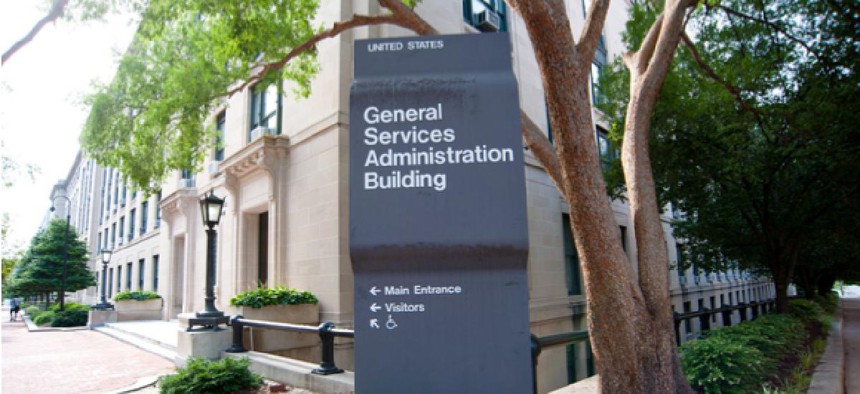How GSA is implementing the contractor vaccination mandate

The agency's Federal Acquisition Service and Public Building Service are using automated tools to send out contract modifications "by the thousands," to add the vaccination mandate said one agency official. FAS started issuing mass modifications on Oct. 8. They're issuing about 3,000 modifications per day.

The General Services Administration is training its workforce to implement the Biden administration's COVID-19 vaccination requirements for federal contractors and subcontractors.
Government contractors and subcontractors must be vaccinated by December 8. The mandate applies to most full- and part-time contractor and subcontractor employees in covered organizations, with exemptions for those legally entitled to an accommodation. The executive order that laid down the mandate also included requirements for other safety protocols like masking and distancing.
Contractors who fall under a $250,000 threshold are exempt from strict requirements, but GSA and the Safer Federal Workforce Taskforce, are encouraging them to modify their contracts to include vaccination requirements as well, GSA officials said.
GSA's federal acquisition workforce attended a Federal Acquisition Service (FAS) training event this week, said Mark Lee, assistant commissioner of the Office of Policy and Compliance at FAS.
"We trained our acquisition workforce on all the guidance [Oct. 12]," he said during an Oct. 13 GSA industry engagement event on the requirements. "So our contracting officers have been trained and are continuing to get frequent and updated information on implementation of this."
That's just one part of the GSA workforce training, said Jeff Koses, GSA senior procurement executive.
"We have shared this with our heads of contracting activity, with our acquisition leadership across the agency. We have briefed all of the GSA senior executives," he said. "We recognize this is new. This is confusing. This is complicated. For that reason, we've built a number of internal resources for our acquisition workforce, and we've built a process for them to quickly get answers to questions that they have in how to implement it."
GSA officials at the event stressed that they were discussing their policies, not those at other agencies.
Biden's vaccination requirements are being translated into covered contracts and "contract-like instruments" via class deviation, a procedure that allows the new requirements to be put into a new clause before formal rulemaking.
The Federal Acquisition Regulatory Council had until Oct. 8 to issue class deviation memos to agencies. The requirements take effect on Oct. 15.
The timeline is tight, Koses said.
"I don't recall another executive order that directed the use of a deviation to implement, or one that had a time period of less than a month from EO signature to a clause, but that's what we're seeing here," he said. Koses has worked at the agency for 34 years.
The agency's FAS and Public Building Service have both been using automated tools to send out modifications "by the thousands," said Koses. FAS started issuing mass modifications on Oct. 8. They're issuing about 3,000 modifications per day, said Lee.
One question agency officials say keeps getting asked: does this apply to contractors working remotely?
If they're working on a covered federal contract, the mandate applies no matter where they are working from, said Koses.
Another common question: is GSA going to be checking up on compliance with this mandate?
Lee said GSA will check on compliance if they have a reason to. This would happen by the agency asking the contracting company if that employee was in compliance.
Biden's executive order gives the responsibility of collecting vaccination requirements and giving reasonable accommodations to those with exemptions to contractors.
For GSA employees, "We're trying to leave them with a few basic messages… We are trying to avoid this becoming a complex, burdensome requirement. That's why we stayed away from certifications and representations. That's why we're staying away from collecting information from you," Koses said.
NEXT STORY: Is category management hurting small businesses?



